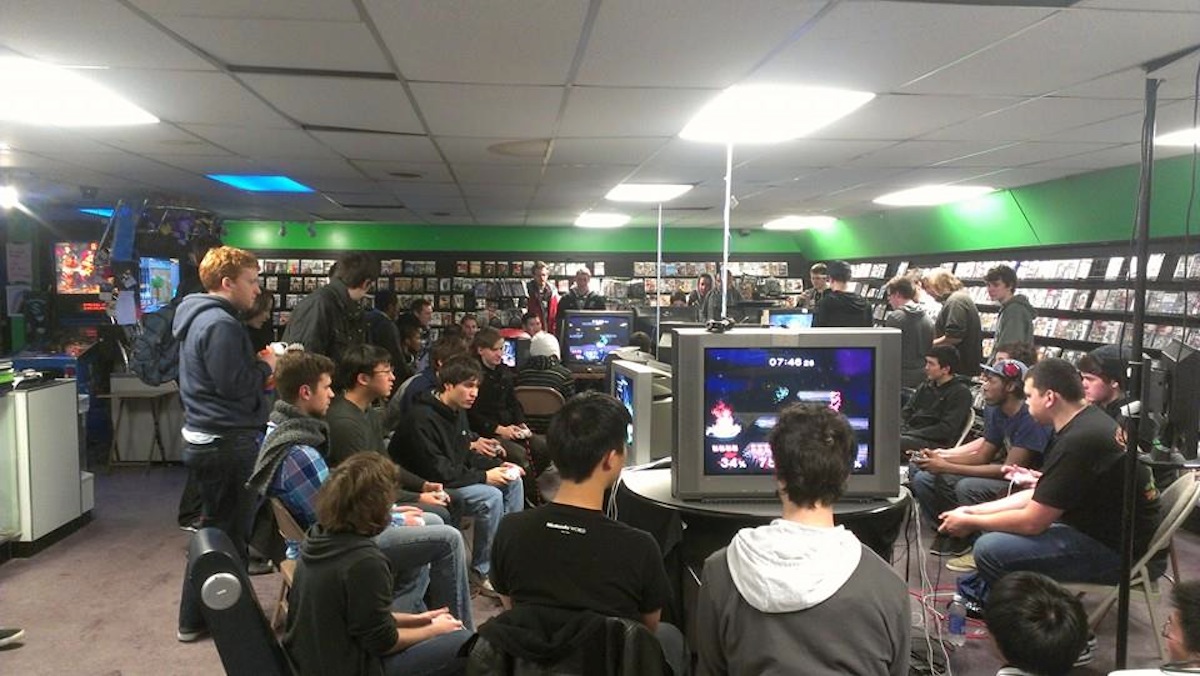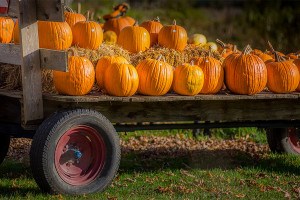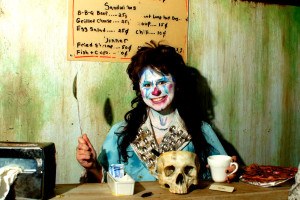Eight Colleges Are Competing For the ‘Super Smash Bros.’ Championship

Smash Brothers tournament photo via Matt Zaborowski
In the fight between eight college teams all vying to become the Super Smash Bros. Melee champion, there can only be one school that reigns supreme.
From February 11 through March 29, dozens of students from Boston University, UMass Boston, University of Connecticut, MIT, Harvard, Northeastern, UMass Amherst, and WPI will fight through a series of bracket-style elimination rounds while playing the Nintendo GameCube video game at Tommy Doyle’s in Kendall Square. The Grand Finals, a live-streamed matchup between the top two college “crews” competing—which will likely be UMass Boston and MIT, based on the event creator’s statistical analysis—will result in one team clutching the title (and the bragging rights) as the best Super Smash Bros. players in the Boston area.
People might not know it—mostly because the events are held indoors, tucked away at Tommy Doyle’s during “Game Over”—but Boston is booming with sub-communities of competitive “Smash Bros.” players that meet on a regular basis to defend their titles. They also migrate to Facebook fan pages by the hundreds, and bring their tense rivalries into chat rooms and message boards.
“Boston has had a large growth of Smash Brothers players within the last year to year-and-a-half,” said Matthew “MattDotZeb” Zaborowski, a Quincy College student, and the organizer of the upcoming “The Melee Games” between the eight colleges. “The events we’ve been running have seen a really large increase in participants.”
Zaborowski has been hosting games in some form since 2007, and is the administrator behind a Facebook group for New England Smash Bros. fans that boasts more than 600 participants. In November, he helped set up a tournament between single players at Northeastern University, called “Northeastern Smash Attack,” and expected no more than 20 people to attend. By the day of the event, however, more than 100 gamers packed three of the school’s classrooms, where screens and consoles were set up so participants could battle it out on the Nintendo game well past 2:30 in the morning. The turnout at the first “Smash Attack” made it the largest melee tournament New England has seen since one called “Viva La Smash” in 2008.
The finals of “The Melee Games” between areas schools will be held during “Northeastern University Smash Attack” part two.
Zaborowski said he saw a similar influx in interest to be part of the melee he’s organizing for the college bracket tournament. Just 20 hours after posting details to the event, 65 students locked themselves in for the nearly six-week-long battle royale, and he expects as word gets out, that number will definitely increase.
“I think initially what draws people in is the idea of, ‘hey, it’s Nintendo characters smashing each other.’ But I also think the biggest thing is that it keeps people going once they see how much depth there is to the game, and what certain players are doing when they compete,” said Zaborowski.
The thriving curiosity for, and dedication to, the Smash Bros. community extends well out of Boston, too.
On “SmashBoards,” which hosts chats about worldwide tournaments and tips for playing, more than 14.3 million conversations are being held between upwards of 150,000 group members.
Tournaments and matches similar to the one Zaborowski’s putting together for Boston college students stretch from Florida to Oklahoma, pitting passionate players against one another in mini-melees that can launch some of the top competitors on towards national and international brawls, and in some cases, a chance at cash prizes.
Some of the largest conventions held that feature Smash Bros. tournaments include APEX, which Zaborowski said is “indeed the largest Smash-focused international event.”
This year’s APEX featured Nintendo 64, Smash Bros. Melee, Smash Bros. Brawl, and Project M competitions—a mod of “Brawl” to make it balanced and more competitive, Zaborowski said—with 640 entrants for Smash Bros. Melee alone. Plus a Boston-area filmmaker created a nine-part series, called “The Smash Brothers,” which focused on the seven best players in the world, and explored the phenomenon behind the game.
“It’s almost like a sport in a way. It takes some knowledge to get good at the game, and it’s very technical as well. It takes practice and a lot of quick coordination,” said Zaborowski.
He said MIT and UMass have some of the top players around, players who’ve even passed down their skills to students participating in “The Melee Games” coming up. “They have the two strongest teams right now. UMass Boston has gotten training over the years by KoreanDJ, one of the tag names for a UMass player who was once considered a top player in the world. He’s basically banned from this circuit because he’s too good. He’s not allowed to play, but they have a really good amount of solid players that can just walk all over you.”
But beyond skill, it also builds the community around the game.
“You have amazing people in the community. You meet the best people around from all over the country,” he said, adding that when he moved from Boston to Chicago for a brief amount of time, he was able to locate other players and form friendship simply by hopping on a message board. “It’s amazing that the people come out to the shared passion for the game can open up and share that with each other. ”
Spots for “The Melee Games” are still open through February 9, but are limited to students that are enrolled in the eight schools signed up.


